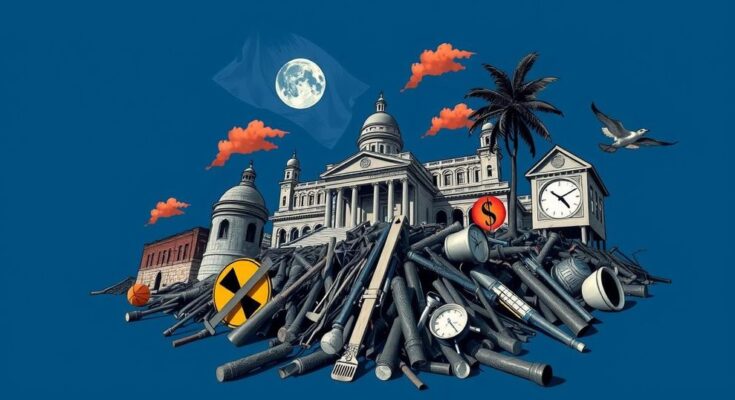Nicaragua faces a severe erosion of academic freedom as the government imposes oppressive measures against universities. Recent UN reports reveal physical and psychological violence against students and faculty, particularly those opposing the regime. Many universities have lost their legal status, and recent reforms have stripped them of autonomy. The international community is called upon to act and restore academic rights and safety for all.
In recent times, Nicaragua has witnessed an alarming degradation of freedom and academic independence, as highlighted by a report from the UN’s independent Group of Human Rights Experts. The government, under President Daniel Ortega, has imposed severe physical and psychological repression on both students and faculty, particularly those who protested against the regime in 2018 or opposed government policies. The universities, historically bastions of social change since the Sandinista Revolution, are now being systematically dismantled, losing their autonomy and becoming tools for government control. Since 2021, a notable number of educational institutions—37 in total—have faced closure or revocation of their legal status, effectively silencing dissent and stifling academic freedom. The report underscores a strategic move by the government to quash any form of organized opposition, with arbitrary expulsions of hundreds of students and professors in retaliation for their political beliefs. The toxicity of censorship has severely hampered the collection of data, masking the true scale of human rights abuses occurring within the academic sector. To further cement their grip, the Nicaraguan Government enacted Law 1114 in 2022, which stripped universities of their autonomy, allowing state control over their financial and curricular matters. Now, for those scholars remaining within the universities’ walls, obtaining essential academic credentials is fraught with obstacles, effectively limiting their future opportunities and collaboration. The group of experts has urged the international community to rise in defense of academic freedom in Nicaragua, calling for a revival of autonomy in educational institutions. “The academic community deserves safe and free spaces to express ideas and contribute to the social development of the country,” emphasized Jan Simon, reflecting the urgency of restoring these rights. It is a critical moment; without immediate intervention, the future of an entire generation hangs in the balance, as the government risks extinguishing the flame of knowledge and dissent.
The erosion of academic autonomy in Nicaragua is a significant issue that stems from various government actions and reforms aimed at controlling dissent and quelling opposition. In the wake of mass protests in 2018 against President Daniel Ortega, the government has systematically targeted students and professors, leveraging violence and administrative crackdowns against universities long recognized as catalysts for social change. The historic role of these educational institutions now stands threatened, as legislation strips them of independence and subjects them to governmental oversight.
In essence, Nicaragua’s academic landscape is undergoing a profound crisis, marked by repression and the systematic dismantling of the freedom to educate and express dissent. The findings from the UN experts underscore the urgency of reclaiming these rights, as students and educators alike face a chilling reality where intellectual growth and socio-political critique are silenced. The international community’s involvement is crucial in reversing this trend and ensuring a future where academic freedom can flourish once again.
Original Source: news.un.org



